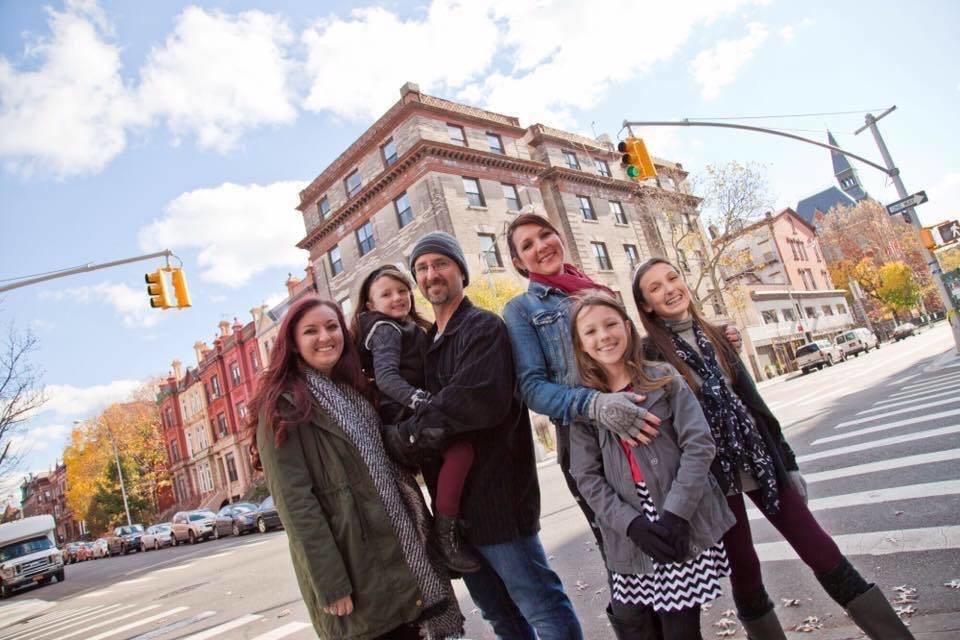
As an emergency/trauma nurse in Austin, Texas, Beth Purkey has pretty much seen it all. But the action really ramps up every fall and winter — a time that she describes as especially "insane." That's because it's flu season: that not-so-wonderful time of year when thousands of people become so ill, they require hospitalization. For Purkey and her colleagues, that means every room is full, beds are lining the halls, and at least 40 people sit in the waiting room. A good portion of these patients will test positive for the flu, she tells CafeMom. When asked whether they got their flu shot this year, they'll undoubtedly respond with the same answer: "No."
Still, that's not what eats away at Purkey the most. The answers that really bug her are the ones she gets from her next question: "Why not?"
It's those answers, which range from "The flu shot causes the flu" to "Drug companies just want to push harmful vaccines on us" that really stick in Purkey's craw.
That's because they are, without a doubt, wrong. "I have always wondered how so many people think these things that are just absolutely false," she tells CafeMom. That is, until one day when she was scrolling through Facebook and stumbled upon an article about the flu vaccine. "I ended up reading the comments to the article and BAM, there was the answer to my question," she continues. "That's how so many people end up misinformed. Social media."
As a medical professional who sees firsthand that vaccines save lives, it's difficult to watch people with "no medical education whatsoever spreading inaccuracies that are alarming to people who don't know any better," she continues.
Purkey says her frustration ultimately got the better of her when she sat down and "cranked out" a doozy of a Facebook post on October 9.
In it, she addressed the many things she often hears in the anti-vaccine crusade — particularly when it's a rant against a flu shot. And she hit the nail right on the head.
"Welp, I went and did it," she began her post. "I read the comments on someone’s flu vaccine post and in the process lost 5,642 brain cells that I can never have back.
"I’m going to say this real clear so that hopefully someone hears my voice louder than Lindsey the bartender who identifies as a ‘health wellness coach’ because she was 'certified' by DoTerra essential oils company," she continued. "At least I can sleep at night knowing that my friends list (and whomever they share this with) heard the voice of an ACTUAL certified medical professional."
She then refutes every claim she's heard -- one by one -- starting with the time-honored favorite: The flu vaccine causes the flu.
"You cannot get the flu from the flu vaccine," Purkey declared. "Ever. No matter what anyone’s told you."
If you're recalling a time where you did feel sick after getting the shot, there is actually some truth to that.
"You CAN get an immune response such as low grade fever, mild inflammation, or local redness and swelling," Purkey continued. "This is GOOD. It means your body is fighting the inactivated virus it’s been exposed to and it will build immune cells specific to fighting that virus if it ever sees it again … hence the entire premise behind getting vaccinated."
What most people don't know, she explained, is that getting the flu shot doesn't instantly make you immune to the flu. It actually takes your body about two weeks to build up "fighter cells" and for the vaccine to reach its "maximum protectiveness," Purkey said.
As for those other terrible "side effects" often mentioned? Those are pretty bogus too.
"The vaccine does NOT cause strokes, auto-immune diseases, or severe allergic reactions," Purkey wrote. "There is a very small percentage of people who’s bodies do not react normally and therefore those people should not receive the vaccine. Let me put it this way; I swell up like Violet in the Willy Wonka factory if I eat avocado. I think we can all agree that avocados aren’t dangerous, my body is the problem, not the food. Likewise, the vaccine is safe, but like all things (even avocados) it can be dangerous for certain people."
There have also been people who claimed to get the stomach flu from the flu vaccine — but Purkey assured that that's just not possible.
"The stomach virus commonly called the 'stomach flu' is not a flu at all," she wrote. "Stomach viruses are commonly caused by novovirus or norovirus, not influenza. If you have symptoms such as vomiting and diarrhea with a fever right after receiving the flu vaccine you are the unfortunate recipient of a sad coincidence. This sad coincidence is not uncommon since peak seasons of these virus’ activity overlap."
"I know you don’t want that to be true," she continued, "but, science."
Purkey tells CafeMom that she's not much of a "keyboard warrior," and doesn't actually spend that much time on social media.
So she was actually quite unaware just how big a problem the spread of false vaccine information really was, until she made her own post.
"Now that I'm aware of just how widespread the issue is, I'm very concerned," she says. And she feels strongly that something needs to be done about it.
"I think that social media platforms have to take more responsibility for their content," she continues. "This issue is costing people their health and their lives. I'm all for freedom of speech, but not if that speech takes the lives of innocent people."
She also points out a disturbing trend among those she saw "shelling out bad advice.
"They were also promoting a product that they personally benefitted from selling," she says. "I honestly don't even think that most of these people believe what they're saying. They literally just want to sell their product, and they've found a way to take advantage of a certain sector of the population."
But ironically, in taking to social media herself, Purkey has helped dispel a lot of the misinformation that continues to swirl around the flu shot.
Her post has been shared upward of 375K times, and garnered hundreds of comments thanking her for being a voice of reason amid a sea of mistruths.
"Well said!" wrote one person.
"Keep fighting the good fight!" wrote another.
In the end, Purkey's post is more than just another "rant" meant to set the record straight -- it's a call to arms at a pivotal time in history.
After all, this is the same kind of misinformation that led to the measles epidemic that now plagues several pockets of the United States. And it's not just in this country — in 2019, the World Health Organization declared "vaccine hesitancy" one of the top 10 health threats in the world.
"We have achieved the eradication of diseases that took a lot of lives many years ago in this country," Purkey tells CafeMom. The only way that can continue is if we maintain herd immunity — "achieved when 90 to 95 percent of the population is protected by antibodies to a specific antigen," Purkey explains.
"If we reach a time where more than 10 percent of our population is not vaccinating against diseases we have worked so hard to eradicate, we have lost our herd immunity," she warns. "These diseases are still active in other countries. The rise of international travel combined with the lower percentage of those vaccinated and the loss of herd immunity is a recipe for disaster."
Purkey, a mother of four, hopes that parents reading her post will heed this warning now, before things get even worse.

"Our children's generation is in big trouble if this trend doesn't change," she says. "People in the US survive these diseases because they're few and far between, thanks to vaccination. We have the ability to pour medical resources into the recovery of the scarce number of people who present with vaccine-preventable diseases at this point in time, because our hospital systems are not over extended."
If things continue to spiral, however, that might not always be the case.
"It is estimated that vaccines save over 40,000 American lives each year," Purkey continues. "That's more than seatbelts and carseats combined. Every state in the union has seat belt and car seat laws, yet very few states have laws mandating vaccines and eliminating the personal belief exemption."
Ultimately, Purkey believes this isn't a personal matter — not when it affects the lives of others.
"It's just not OK to believe something completely contrary to all evidence that puts others at risk," she says. "I think it's time for our country's elected officials to take this issue seriously and protect the health of the community at large, or there may come a time when our resources are overwhelmed and the ER cannot shoulder the entire burden. What then?"




